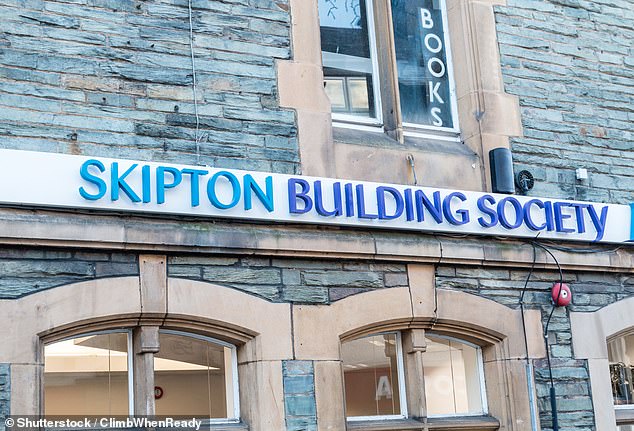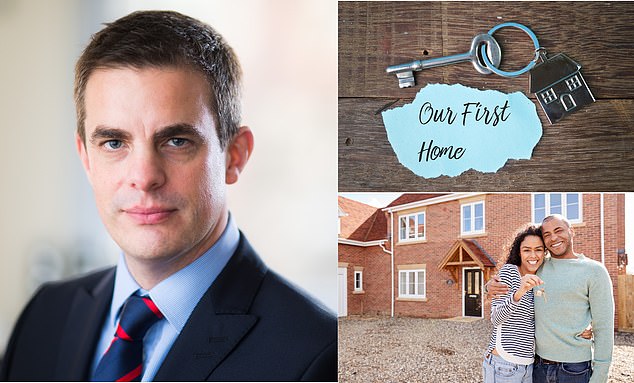Table of Contents
My girlfriend and I want to buy a house for £250,000. We are a couple in our 20s and have a joint income of around £80,000, although we both have significant student loan debt to pay off.
We have very little savings, so we thought that ruled us out of buying a house for the time being.
But we’ve seen something recently about 99 percent mortgages that look interesting.
Which lenders offer these deals and what are the obstacles we would have to overcome to get one? Are they much more expensive than other mortgages?
SCROLL DOWN TO FIND OUT HOW TO ASK DAVID HIS MORTGAGE QUESTION
Mortgage help: In our weekly column Navigate the Mortgage Maze, broker David Hollingworth answers your questions
For example, compared to the mortgage we could get with a 5 percent or 10 percent deposit.
We currently have £5,000 saved, should we try to get to £12,500 for a 5 per cent mortgage or move on? What are the dangers of opting for the 1 percent deposit option?
David Hollingworth replies: In your case, mortgage affordability calculations won’t slow you down, assuming your expenses and commitments are typical.
In your case, the brake on the purchase is the need for an adequate deposit. However, as it can back the mortgage, a lower deposit requirement could be a big help.
Mortgage deals offering 100 percent of the purchase price or more were widely available, but disappeared after the financial crisis.
The typical minimum deposit requirement in today’s market is 5 percent of the purchase price.
New alternatives
With depositing being such a problem area, lenders have sought to develop options.
Many have tended to take advantage of parental help, but more recently there are examples of products that could offer alternatives without the need for the Bank of Mom and Dad.
The concept of 99 per cent mortgages was considered a possible solution ahead of the Spring Budget, to encourage more mortgage options.
A government-backed scheme never materialized but Yorkshire Building Society and its broker brand Accord Mortgages subsequently launched a product that can offer up to 99 per cent of the purchase price.
Their so-called £5,000 deposit mortgage requires a minimum of, you guessed it, a £5,000 deposit.
Available on properties up to £500,000, which could equate to as little as 1 per cent of the purchase price, although in your case it would represent 98 per cent of the loan value.
It is only available on existing homes, not on flats or newly built properties. At least one applicant must be a first-time buyer and there can be no other properties in the background.
> Is a two-year fixed mortgage still a good bet?
Skipton Building Society also offers an innovative track record deal that allows loans of up to 100 per cent loan-to-value (LTV) for those who can demonstrate 12 months of rental payments that are higher than their mortgage payment.

99% mortgage: Yorkshire Building Society is the lender behind new proposal allowing first-time buyers with a £5,000 deposit to buy a property valued at up to £500,000
Pros and cons
The big plus of any deal with a high LTV is that it could speed up your chances of purchasing.
Saving for a smaller deposit could allow you to buy sooner – something that’s even more important when house prices are rising and could be increasingly out of reach.
Rates on higher LTV offers will be higher than those with a larger deposit. Yorkshire BS and Accord’s deal is currently 6.39 per cent, Skipton’s is at 5.55 per cent and the lowest five-year 95 per cent fixes are closer to 5.3 per cent or even a little less.
A 10 per cent deposit would see the best rates fall below 5 per cent.
> True Cost Mortgage Calculator: Check what a new fixed rate would cost

Skipton Building Society made headlines last year when it launched a 100% mortgage for tenants to allow them access to the property without a deposit.
The balance of higher rates is how long it could take to save. Using something like the Lifetime Isa can help boost savings and the government adds 25 per cent, whether used for a first purchase or for retirement.
It’s important to budget for other purchase costs, including legal and inspection fees, in addition to the cost of moving. Ideally, you also have a cushion to fall back on in case of any other unforeseen expenses.
A small deposit increases the possibility of negative equity if prices fall. This is mitigated by the fact that the mortgage will need to be repaid, so the outstanding mortgage will reduce over time.
Rates on these products are fixed for five years, which also eliminates the ups and downs of any rate fluctuations.
Your decision will have to come down to a balancing act between the cost and the time it might take to save a larger deposit.
NAVIGATE THE MORTGAGE LABYRINTH
Some links in this article may be affiliate links. If you click on them, we may earn a small commission. That helps us fund This Is Money and keep it free to use. We do not write articles to promote products. We do not allow any commercial relationship to affect our editorial independence.

